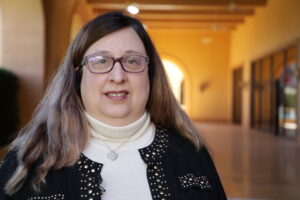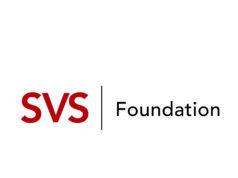
Outgoing Eastern Vascular Society (EVS) President Kathleen Ozsvath, MD, used her presidential swansong to address the needs of those practicing the specialty moving forward, combining themes of family, collaboration, and diversity, equity and inclusion.
Ozsvath, who serves as chief of surgery at Samaritan Hospital in Troy, New York, set the tone by invoking elements of her own story and career journey: a family history that includes highly successful immigrant parents; a feeling early in life of not fitting in; and an odyssey into vascular surgery that, at first blush, was discouraged by those who would be her mentors.
In her EVS 2024 presidential address “Vascular surgery: An EVS team sport and family affair combined with finding your superpower,” Ozsvath provided a prescription for change in a specialty increasingly made up of a more diverse workforce and facing a rising tide of vascular disease.
Ozsvath is the child of Hungarian parents: her father, Istvan, was a celebrated theoretical mathematician, and her mother, Zsuzsanna, a professor of literature and the history of ideas, and a Holocaust survivor.
Ozsvath told those gathered for the address, which took place during the 2024 EVS annual meeting in Charleston, South Carolina (Sept. 19–22), how she found elements of her own experience in a book she recently finished reading that was authored by the first-ever Native American woman surgeon: In it, “the concept of not fitting in during her younger teenage years, and also coming from a family whose very existence was almost eradicated,” spoke to her about belonging to a family in the filial sense but also to “groups of families,” like the EVS.
Ozsvath urged the next generation of vascular surgeons—both trainees and medical students—to pursue their dreams and to ignore any naysayers who may be attempting to discourage them. At the outset of her journey in medicine in Dallas, Texas, she described how she faced down her own version of discouragement. “As a medical student, I was told I couldn’t be a surgeon because I’m a female,” she said. “Of course, I smiled, said, ‘Thank you, sir,’ and went to New York.”
Ozsvath cast an eye over a profession in transition but with challenges to be tackled. “The patriarchal system of learning in surgical training still exists today; we carry forward with our forefathers upon us. However, the conversation now is becoming very loud and very clear: that we need change, to embrace our differences and the differences of our patients, and to create better training programs and better academic societies like this one, and to create better work environments.”
The specialty faces dual concerns around gender and racial equity issues, both within the workforce and in the patient population, as, now, publications and research in these areas gather apace, Ozsvath noted.
“Our patients need a nurturing environment to feel safe and share,” she said. “We need to understand and better embrace their cultural differences to be their doctors. It is our responsibility to translate, and speak in the language that our patients understand, these daunting procedures that we have to offer. Learning from one another about our differences will make us better people, better doctors, better humans and, more important, better family members.”












